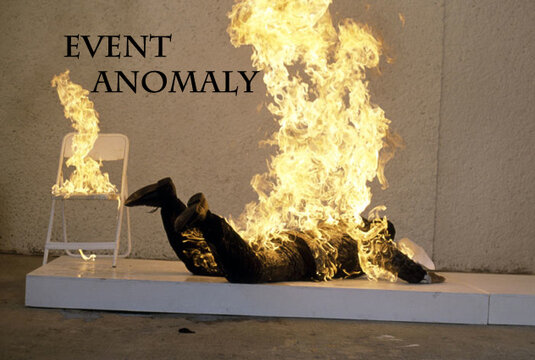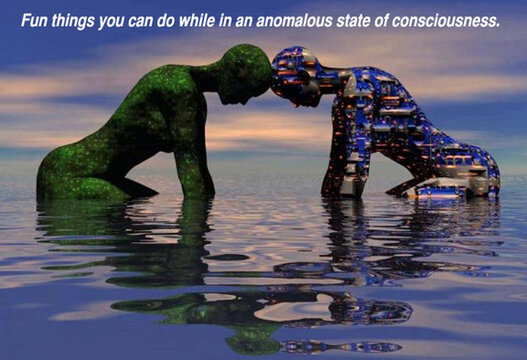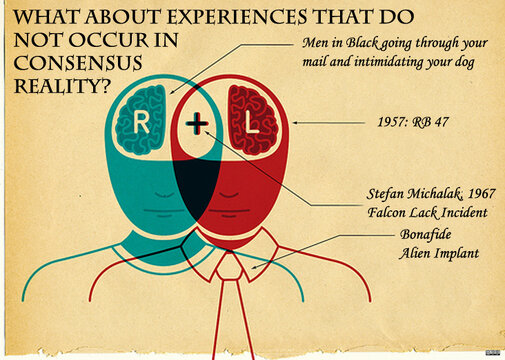This is a cross post from the Jerome Clark and Fate Magazine editor episode but i think it has more merit here and should be recorded here in terms of a more in depth look at Clark.
The Paranormal According to Jerome Clark: Anomalous Events and Experiences

I'm a fan of Clark's work because what he says about UFO's and the paranormal are reasonable, well researched and done so with a passion and a zeal. Like everything Clark does he injects his own razor's wit and verve into stories he feels need telling or ripping to shreds - and that includes his distaste for thought experimenters like Tonnies or imaginative confabulists like Keel. For him the paranormal landscape has clear divisions i.e. either it happened and you can prove it or you can't and you're just telling a story, or a lie. If you've been set on fire you know it happened and you have the undeniable scars and trace evidence to prove it. I had a teenage friend once who set himself on fire after being careless at the pumps while filling his car and thought nothing about lighting up a smoke in the car afterwards. Visiting him in the hospital later and seeing his skingrafts convinced me that those are events worth preventing.
Clark breaks things down like this:
There are, as I see it, three classes of anomalous claims and phenomena:
(1) Pseudo-anomalies, which is to say the noise generated by misperceptions, wishful thinking, hoaxes, delusions, and exaggeration.
(2) Core anomalies that manifest as unusual and puzzling events in the world - in other words, they give us some reason to suspect their objective and physical, if unexplained, presence in the world - and that will be eventually explained within the boundaries of expanded existing knowledge.
(3) Experience anomalies, shadow phenomena that 'exist' in vivid (frequently collective) perception, that sometimes have a parasitic relationship to (2), while being epistemologically unrelated, and whose existence cannot be proved at the event level even as the extraordinary appearances at their center can be, in some subjective sense, experienced in deeply anomalous states of consciousness. We lack so much as a vocabulary for these, and they are so far beyond current knowledge (if - emphatically - not universal human experience) that explanations and theoretical frameworks cannot be usefully discussed. Literal interpretations are certainly wrong.
It is (3) that interests me most these days, and to which I intend to devote my energy and attention as an anomalist from here on.

You might mistake Jerome Clark as a minimalist theorist vs. other more elaborate theorists, such as things talked about during the most recent
Stalking the Herd episode, where we were reminded of ideas such as the Memeplex Evolutionary Imperative. Clark however, does not subscribe to a Jungian perspective at all. I believe his favourite quote on Jung is that
the only place the collective unconscious exists is in Carl Jung's library. He doesn't have time for thought experiments, at least not anymore. Clark is an historian who deals in facts, and is very interested in the hardcore UFO event with multiple witness radar signal trace evidence cases. However, his real area of personal emphasis is on experience anomalies, things that come from the liminal world that do not appear to have happened in consensus reality. They are alive in the memory of witnesses which he describes their core dilemma this way, “many high-strangeness phenomena are vivid experiences while not being actual events in any ordinarily understood sense.”
How are we to make sense of these otherworldy stories that have had a profound impact on the experiencer but are just simply not a traditional experience in the way we define conscious experience? People have been seeing mermaids, hoop snakes, mysterious airships and even claim contact with all manner of odd humanoids that appear to have literally stepped out of the twilight zone to make a brief visit to our world much to the wild wonder of those who see such things. No one has documented these cases with more vigour than Clark over the years - any minor perusal of his published works will open you up to his true passion for high strange experiences.

Clark has this final statement to make about anomalies: "In my view the centuries-old debate over anomalies and the paranormal stalled long ago because both sides have insisted on either-or interpretations, causing both to engage in extreme, untenable — not to mention absurdly literalist — rhetoric. It would have helped if the debaters had acknowledged that sometimes “experience” and “event” are not synonymous." The rabid debunker dismisses the idea of liminal experiences as the product of unstable folk prone to fantastical thinking, but perhaps this investigation into odd experiences needs to be treated in an entirely different manner, using tools not yet invented. For him we can not dismiss the Men In Black stories out of hand, but we should be disciplined about which stories we lean on to explore.
As a final consideration i'd like to remind you of the infamous 1967 Falcon Lake Incident with Stefan Michalak whose full narrative includes the up close and personal viewing of a real life flying saucer, audible voices of occupants coming from inside the ship, and then finally an exhaust port burn that left Michalak scared and scarred - it is a premiere tale and if you don't know about it I'm not sure what you're doing here at this forum. Either way, here are some interesting bits of info that document it along with the classic photo of Michalak and his burns - taken from a Polish website, just to acknowledge my appreciation for my Grandmothers's exceptional perogies and cabbage rolls, as she's turning 99 this May, so Poland is on my mind.
The Falcon Lake Wiki article
CBC Digital Archives
Collections Canada

What are we to do with Michalak's experience? Questionable trace evidence was also found, though Stefan's tale and wounds are extraordinary. Was this an experience? Was it an event? How are we to log what happened to him and what he saw? I prefer to see his incredible experience as one of the great UFO tales that seems to be a strong example of an incursion into our world from a set of beings that normally do not participate in our reality but likes to visit our minds every now and then with their technology. And as others have suggested, why couldn't these experiences also be events and provide physical traces of their ephemeral nature.







